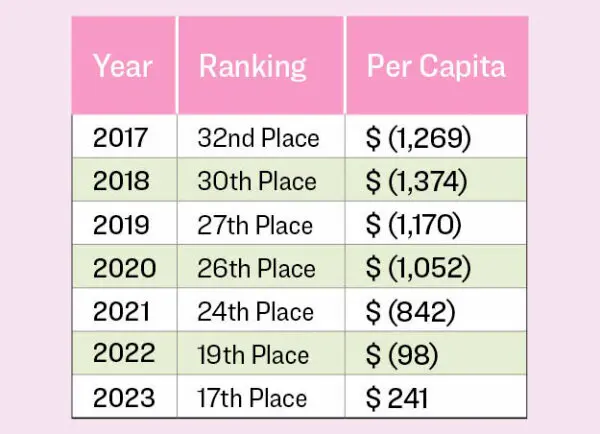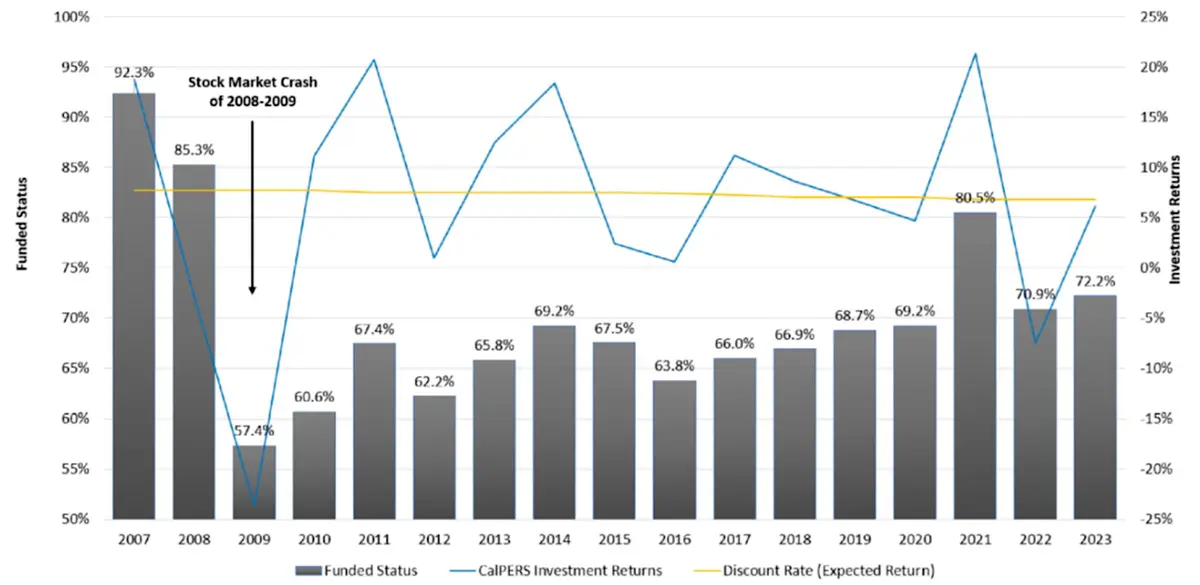- John Moorlach

- Photo by Vlado Paunovic: via Pexels
One of the fun components of reviewing annual comprehensive financial reports, which is a very time-consuming “hobby,” is when you see a trend that needs to be complimented.
What do we find that is noticeable and worth talking about? The city of Newport Beach and its ascension in the rankings, compared to other cities in the county.
The cities were ranked by their unrestricted net position (found in their annual comprehensive financial reports) divided by the population, providing a useful tool for demonstrating a city’s fiscal health. The negative balance sheets are shown below in parentheses, while the positive one is not.

Seeing the city improve from 32nd place to 17th place since 2017 prompted me to contact some of Newport Beach’s current and former city councilmembers for the city’s “secret sauce.”
The city also established a finance committee, comprised of three city councilmembers. When Scott Peotter was on the council, four financially focused public members were added, increasing it to seven members. The meetings are open and transparent. One goal was to achieve a reserve of 25 percent of the general fund. Another goal was to pay down the defined benefit pension plan unfunded liability to zero by the years 2029-2030.
Taking a very conservative approach, the annual budgets included all of the necessary staff positions, even though some might have been vacant at the time. When the city had a budget surplus, half would be allocated to retiring pension and other debt, and the other half would go to public works on a one-time only basis.
Should a necessary building project be identified, like a fire station or library, it would be fully planned, with a multi-year timeline and budget, from concept to completion. When a new city manager is selected, having a strong background in the finance area is a requirement. And rightsizing city staff was a critical priority, reducing the number of employees on June 30, 2009, from 832, down to 736 five years later.
Budget Priorities:
- Providing high quality municipal services that residents expect
- Maintaining the safety and security of our neighborhoods
- Keeping Newport Beach looking great
- Maintaining a prosperous, fiscally sustainable, and economically viable city
Additional Focus:
- Continued emphasis on elimination of the City’s long-term liabilities
- Ensuring proper funding for long-term capital needs
- Addressing key City Council priorities identified at the February 3, 2024, City Council Planning Session
The following chart was also provided, showing the city’s methodical climb towards fully funding its defined benefit pension plan with the California Public Employees Retirement System:

(Courtesy of Newport Beach)
The city of Newport Beach provides a proven roadmap on how to address a city’s finances. It is a tribute to successor city councils that they continued the fiscal priorities in subsequent years. The determination of each new city council every two years has borne fruit and, as they say, the proof is in the pudding. Congratulations, Newport Beach.
This article originally appeared in The Epoch Times.
John Moorlach is the director of the CPC’s Center for Public Accountability. He has served as a California State Senator and Orange County Supervisor and Treasurer-Tax Collector.
California Local Elected Officials (CLEO) is a membership organization that networks, educates, supports and advises local elected officials throughout California’s thousands of cities, counties, school and special districts. CLEO offers policy guidance, detailed financial analyses, legal perspectives and communications assistance to our members on principled governance. Find out more at Calelecteds.org.
CLEO is a project of the California Policy Center
© 2023 California Policy Center. All rights reserved.